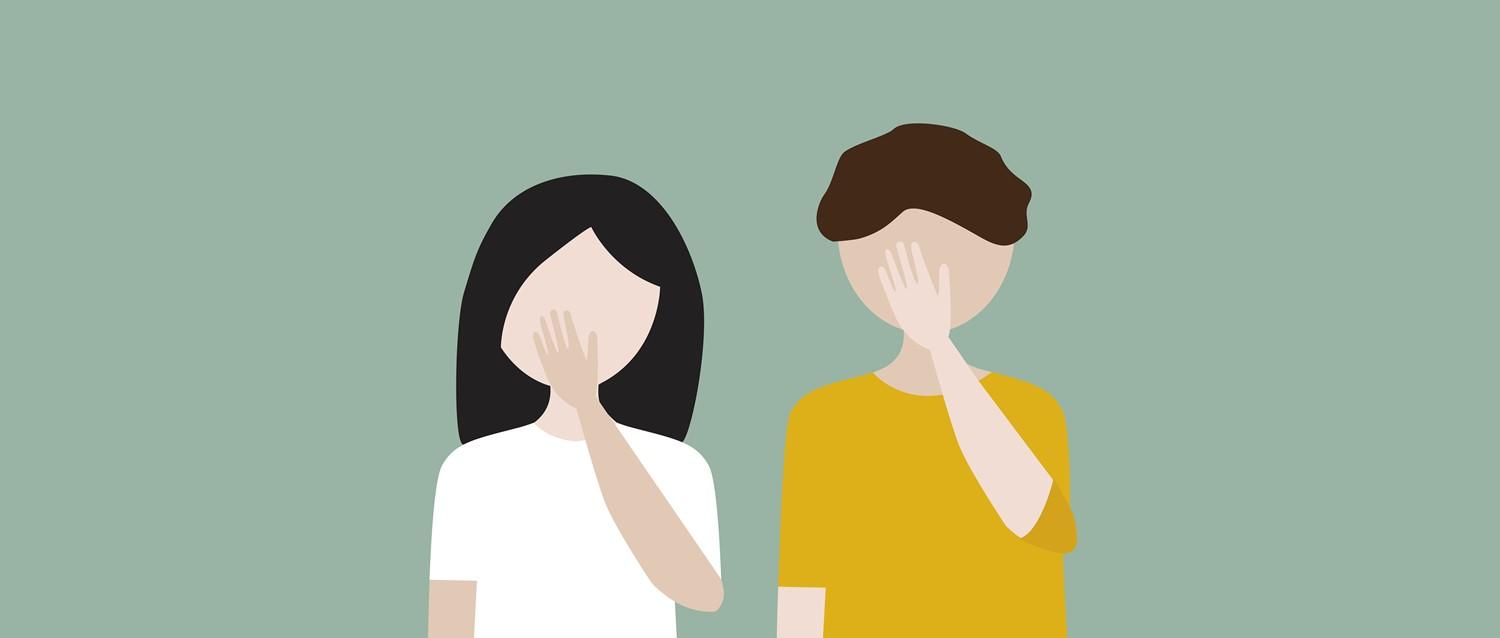
How to get rid of indigestion
Peer reviewed by Dr Krishna Vakharia, MRCGPAuthored by Emily Jane BashforthOriginally published 24 Nov 2022
Meets Patient’s editorial guidelines
- DownloadDownload
- Share
- Language
- Discussion
Indigestion is incredibly common and can affect people differently. Fortunately, there are ways of managing it, most of which are simple lifestyle changes.
In this article:
Continue reading below
What causes indigestion?
There is often no obvious reason for what brings on indigestion. However GP, Dr Hana Patel, says indigestion is caused by excess stomach acid and can be brought on by eating foods that are particularly greasy, spicy, or rich.
Some pre-existing health conditions can also be an indigestion trigger - the cause that brings indigestion on. For example, acid reflux, when acid from the stomach persistently flows back into your mouth, and through your gullet (oesophagus) can cause indigestion or heartburn. The later stages of pregnancy can also bring on indigestion. This can be caused by hormonal changes, as well as pressure from the growing baby on your stomach. Other causes of indigestion include:
Overeating.
Eating too quickly.
Too much caffeine.
Too much alcohol.
Carbonated/fizzy drinks.
Smoking.
Anxiety.
Some medications have also been known to make indigestion worse, such as ibuprofen, which can irritate the stomach’s lining.
What does indigestion feel like?
Dr Patel says: "Indigestion can feel like a pain or burning sensation in the upper abdomen. It can also make you feel nauseous. Eating can either make symptoms worse or better, but it’s likely you’ll quickly feel full and uncomfortable after eating a meal."
Pain caused by indigestion is generally mild but can sometimes be more severe. You might experience bloating in the abdomen, as well as burping, and farting.
Continue reading below
How to get rid of indigestion
Don't eat too close to bedtime
Eating too close to bedtime can worsen indigestion. When you’re lying down, digestion isn't as easy for the body and acid from the stomach can flow into the oesophagus, causing discomfort.
It is therefore recommended that you stop eating 3-4 hours before bed. It is thought to take this long for food to clear from the stomach and pass to the small intestine.
Be aware of your trigger foods
Everyone's trigger foods will be different - there might be something that gives one person indigestion and not another, and vice versa. If you suffer from indigestion regularly, make a note of what triggers it and try to avoid those foods where possible, especially at nighttime.
Foods that are oily and high in fat - such as fast food, fried food, and pizza - can contribute to indigestion, as can processed snacks, such as crisps.
Fatty meats like bacon, citrus fruits such as oranges and lemons, chocolate, and peppermint can also cause indigestion. However, in some people peppermint can help.
Additionally, you should limit your intake of spicy foods, such as chilli powder, raw onions, black pepper, and garlic.
Watch your portion size
Tackling indigestion doesn't just involve what you eat - it's also about how much you eat.
Large meals and eating too quickly are one of the main causes of indigestion. You should aim to eat three decent-sized meals each day.
But how do big portions cause indigestion? Well, big meals expands your stomach. This can lead to feelings of extreme fullness and bloatedness, much like when pregnancy.
Cut down on caffeine
Cutting down on caffeine could greatly improve your indigestion pain.
Coffee and other caffeinated beverages can cause indigestion due to their effect on the lower oesophagal sphincter - the muscles connecting the lower end of the Gullet to the stomach. Too much caffeine can cause these muscles to relax, creating an opening for stomach acid to travel into the oesophagus, causing pain and discomfort.
Coffee can cause symptoms even for those without a history of indigestion.. In these instances, a safer substitute might be decaf or low-acid coffee, which is specially designed for sensitive stomachs and doesn't compromise the taste.
In some people, coffee might also cause indigestion if you have it with high-fat milk or cream. Cutting down on these extras could ease your symptoms. It might take some trial and error, switching out different things before finding a coffee recipe that works for you.
Another solution for coffee lovers whose indigestion isn't frequent and severe is to simply consume caffeine in moderation. . Howver, bear in mind that going cold turkey if you’re a regular coffee drinker could lead to withdrawal symptoms.
According to the European Food Safety Authority's (EFSA) review of caffeine safety, caffeine consumption up to 400mg (around four cups) over the course of 24 hours is not likely to cause any harm to an adult - not including those who are pregnant.1
Remember, caffeine content varies by brand and roast.
Reduce alcohol consumption
Alcohol can contribute to indigestion as it's associated with the rise of acid from the stomach into the throat causing irritation to the tissues in the oesophagus. Some alcoholic beverages produce more acid than others.
If you are someone who struggles with indigestion frequently and you drink alcohol, it’s advised to remain hydrated at the same time - alcohol is a diuretic and can actually dehydrate you - and never drink on an empty stomach.
Cut down or stop smoking
Smoking weakens the sphincter, once again opening the doors for acid to leak from your stomach to your oesophagus.
Smoking tobacco can also reduce the amount of bicarbonate present in your saliva. Bicarbonate is acid-neutralising.
Try to lose weight if you are clinically overweight
Anyone can get indigestion or heartburn, but it has been long suspected by researchers that being medically diagnosed as obese can increase your likelihood of indigestion.
The specifics aren't exactly known, but it is thought that carrying extra weight puts more pressure on the abdomen, forcing acid up the oesophagus.
Therefore, maintaining a BMI within a healthy range and adopting simple lifestyle changes can be a simple solution to those restless nights with indigestion and can be an easy solution in how to get rid of indigestion
One study actually found that women with a normal BMI (under 25) at the start of the study, who then had an increase in BMI of more than 3.5 points, were three times more likely to experience acid reflux symptoms than those with no weight changes.3
Try medication
Dr Patel says: "Your pharmacist can help with over-the-counter medication for persistent indigestion. These remedies include antacids - like Gaviscon - or medications that reduce the amount of stomach acid made by the glands in the stomach lining - such as esomeprazole” .
When to see a doctor about indigestion
Indigestion can really interfere with your everyday life, not to mention your sleep if it's keeping you awake at night. If you've tried lifestyle changes and over-the-counter remedies but still find your indigestion to be persistent, or if you can't pinpoint the cause, your GP can offer advice.
Dr Patel adds: "If your symptoms are affecting you in that you are losing weight, vomiting, or having to drastically alter your diet, you should seek advice from a doctor, as well as if symptoms become more frequent."
Continue reading below
Further reading
Patient picks for Indigestion and heartburn

Digestive health
What it means when you constantly need to burp
Burping is a necessary (and often very entertaining) quirk of the human body. But if belching becomes excessive or accompanies painful symptoms, it could be time to visit your GP.
by Dr Laurence Knott

Digestive health
Is it really reflux? Why you might be mis-prescribed PPIs
Remember when being mis-sold PPI was a thing? Well, have you heard of being mis-prescribed PPI? Proton pump inhibitors - or PPIs - are medicines that reduce the amount of acid your stomach produces. They’re typically prescribed for gastro-oesophageal reflux disease (GORD), more commonly known as heartburn or long-term acid reflux. Up to 20% of people in the UK have GORD, and around 10 million are prescribed PPIs to manage their symptoms. However, according to new survey commissioned by The Functional Gut Clinic, many people are being prescribed PPIs for GORD without undergoing formal tests to confirm the condition.
by Victoria Raw
Continue reading below
Article history
The information on this page is peer reviewed by qualified clinicians.
24 Nov 2022 | Originally published
Authored by:
Emily Jane BashforthPeer reviewed by
Dr Krishna Vakharia, MRCGP

Ask, share, connect.
Browse discussions, ask questions, and share experiences across hundreds of health topics.

Feeling unwell?
Assess your symptoms online for free
Sign up to the Patient newsletter
Your weekly dose of clear, trustworthy health advice - written to help you feel informed, confident and in control.
By subscribing you accept our Privacy Policy. You can unsubscribe at any time. We never sell your data.